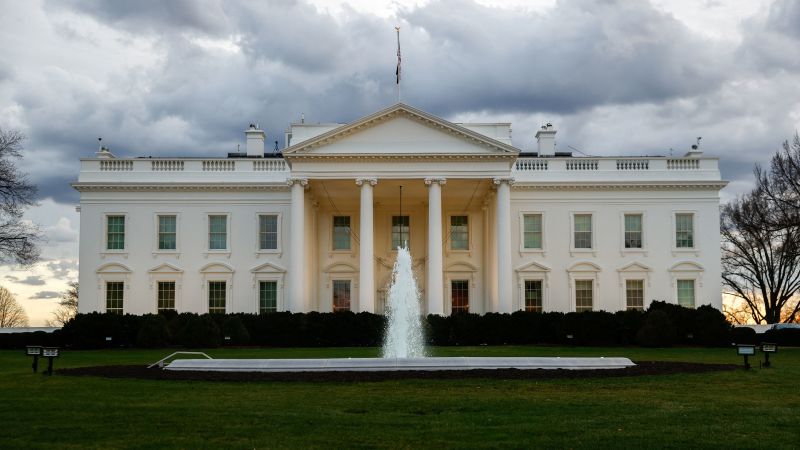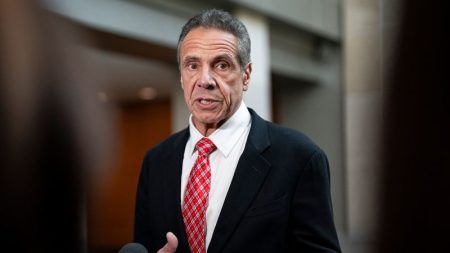The deaths of three American troops in a drone attack Sunday has thrust the United States deeper into the Middle East conflict and lent fresh urgency to efforts at securing the release of hostages in Gaza in exchange for a prolonged halt in the fighting between Israel and Hamas.
The confluence of intertwined events — high-stakes hostage talks in France were underway at the same time American officials were grappling with the troop deaths in Jordan — added up to one of the most charged moments since the outbreak of violence following Hamas’ October 7 terror attacks.
Now, leaders in Washington and the Middle East are mulling choices that could significantly transform the situation, with thousands of lives and the future of the region in the balance.
President Joe Biden, who vowed to respond to the drone attacks “at a time and in a manner of our choosing,” faces a decision on the scale of the American reprisal, which will have consequences both in the region and at home as he enters a tough reelection fight.
In Israel, Prime Minister Benjamin Netanyahu is under intense pressure to strike an agreement that would secure the return of more than 100 remaining hostages inside Gaza, a step that will require a lengthy pause in Israel’s campaign against Hamas.
And in Tehran, leaders must determine whether a strategy of sowing instability in the region through proxy groups is bringing them closer to direct combat with the United States — a step American officials say Iran doesn’t want and which the country has gone to some lengths to avoid.
How each party proceeds in the coming days could significantly alter the trajectory of the Israel-Hamas war and the broader tensions it has sparked in the Middle East. The issues have been the subject of hours of intense Situation Room discussions and high-level talks between the leaders.
“This is a dangerous escalation. We’ve been trying to make sure this conflict doesn’t escalate. This pushes it much closer to that point,” Rep. Adam Smith of Washington state, the top Democrat on the House Armed Services Committee, said of the drone strikes in Jordan, which left more than 30 American service members injured in addition to the fatalities. “It’s imperative the US respond and find a way to stop these attacks, and I know the president’s working on that.”
Smith said the prospects of a widening war could not be separated from the situation in Gaza, where Israel’s military campaign has killed more than 26,000 people, according to the health ministry there, and triggered the rise in violence across the region.
“What happens in Gaza is crucial,” said Smith. “The conflict in Gaza is empowering Iran right now. And that is bad for us, bad for Israel, bad for the Arab states, bad for the world. So finding a resolution to that is a crucial part of this challenge as well.”
Speaking in the banquet hall of a Baptist church in South Carolina hours after the attacks, Biden left little question to his broad intentions: “We shall respond,” he said after asking for a moment of silence for the US troops killed.
Yet what that response looks like is still being determined. There has been an imperative inside the White House to prevent the conflict from spreading — and a strong aversion to becoming directly involved in a regional war against Iran.
Already, Biden was coming under pressure to ratchet up the scale of American counterattack. Republicans on Sunday swiftly made calls for Biden to strike targets inside Iran, which the US has accused of being behind the proxy groups attacking American troops in Iraq and Syria.
Sen. Lindsey Graham of South Carolina urged the administration “to strike targets of significance inside Iran, not only as reprisal for the killing of our forces, but as deterrence against future aggression. The only thing the Iranian regime understands is force.”
Sen. John Cornyn of Texas was blunter: “Target Tehran,” he wrote on X.
For Biden, whose handling of the Gaza conflict has already generated anger on the political left as he enters his reelection campaign, the choice of how to respond will be fraught politically.
American officials have said they have used backchannels to convey to Iran and its proxies that the attacks on US troops must stop. Yet those efforts appeared to do little to prevent the drone attacks, and officials inside the White House have long feared that one would eventually result in fatalities.
With that fear now realized, officials said the president was determined to respond forcefully. In a series of briefings Sunday from top members of his national security team, including Defense Secretary Lloyd Austin and national security adviser Jake Sullivan, Biden discussed the attacks and potential American responses.
At the same time, US officials remain hopeful they are inching closer to reaching a hostage agreement that would include a lengthy pause in the fighting in Gaza — and, they hope, an easing of tensions in the region.
US officials believe a longer cessation in the fighting could provide space for more humanitarian aid to flow into Gaza as well as continued discussions about the future of Israel’s campaign against Hamas.
Biden dispatched CIA Director Bill Burns to Paris for talks Sunday on a plan that would include a phased release of all the remaining hostages in Gaza paired with a suspension of the war for two months, a proposal that if agreed to could have a significant impact on the future of the conflict.
Afterward, the Israeli prime minister’s office described the talks as “constructive,” but said “significant gaps” remained. The parties will “continue to discuss at additional mutual meetings to be held this week,” the office’s announcement said.
Qatar’s prime minister is expected to travel to Washington this week, a diplomatic source told CNN, as the discussions intensify. Qatar has acted as a key broker in talks with Hamas.
Sunday’s meeting, which included Burns and his intelligence counterparts from Israel and Egypt along with the Qatari prime minister, was an important moment as the negotiations move closer to a deal. American officials said they were cautiously optimistic that the talks were moving in the right direction, and that an agreement could soon be in reach.
As the deaths of the three American troops fuel fears of a widening regional war, US officials said there was now only more urgency in arriving at an agreement that could bring the tensions down.
“This loss and the growing instability across the Middle East, make it even more clear why those negotiating a new pause in the fighting in Gaza and the return of the hostages must work with urgency,” Rep. Elissa Slotkin, a Michigan Democrat and former CIA analyst, said on X.
Read the full article here








